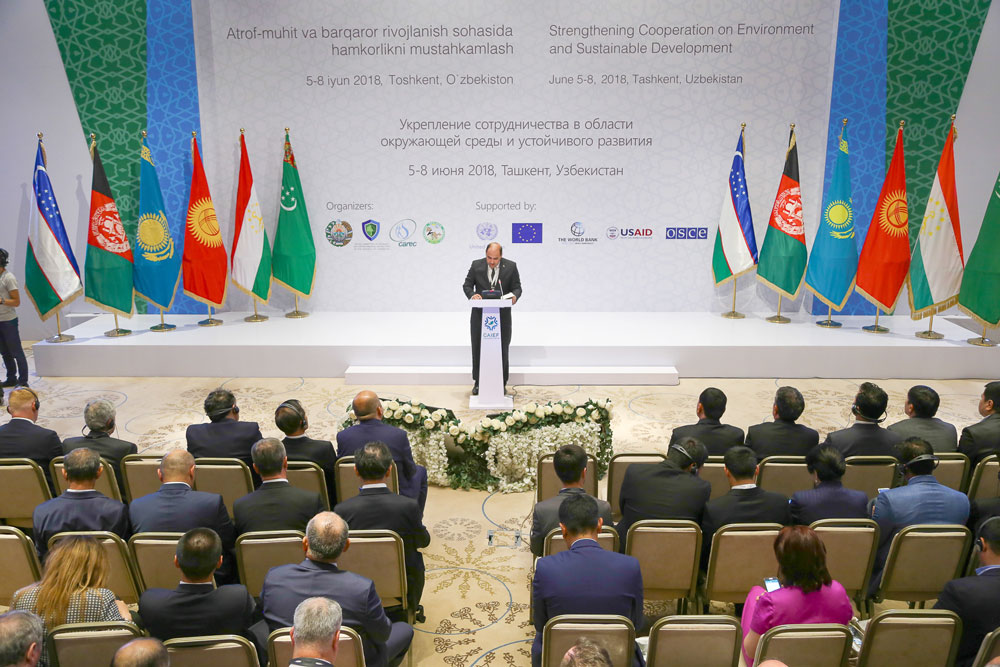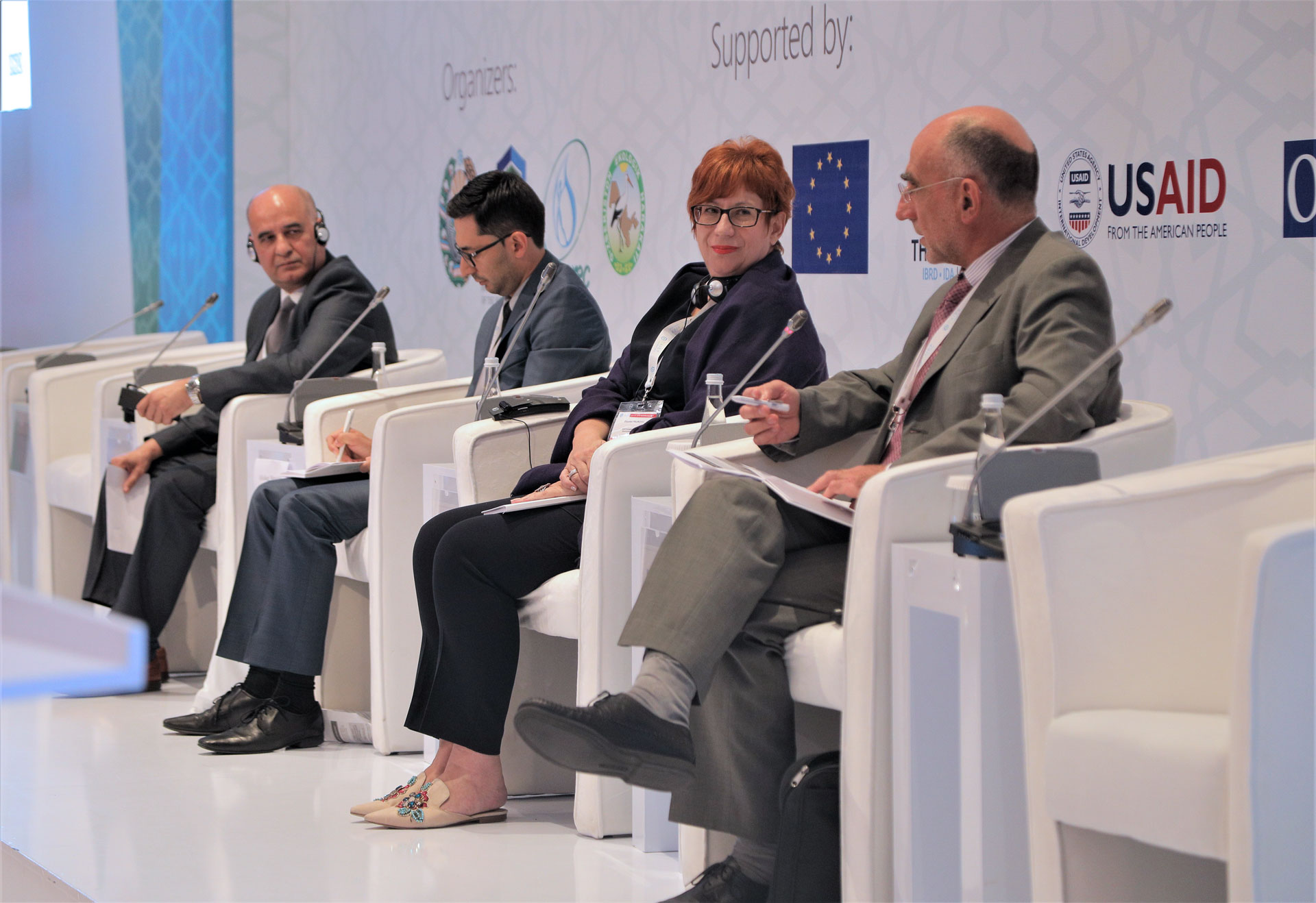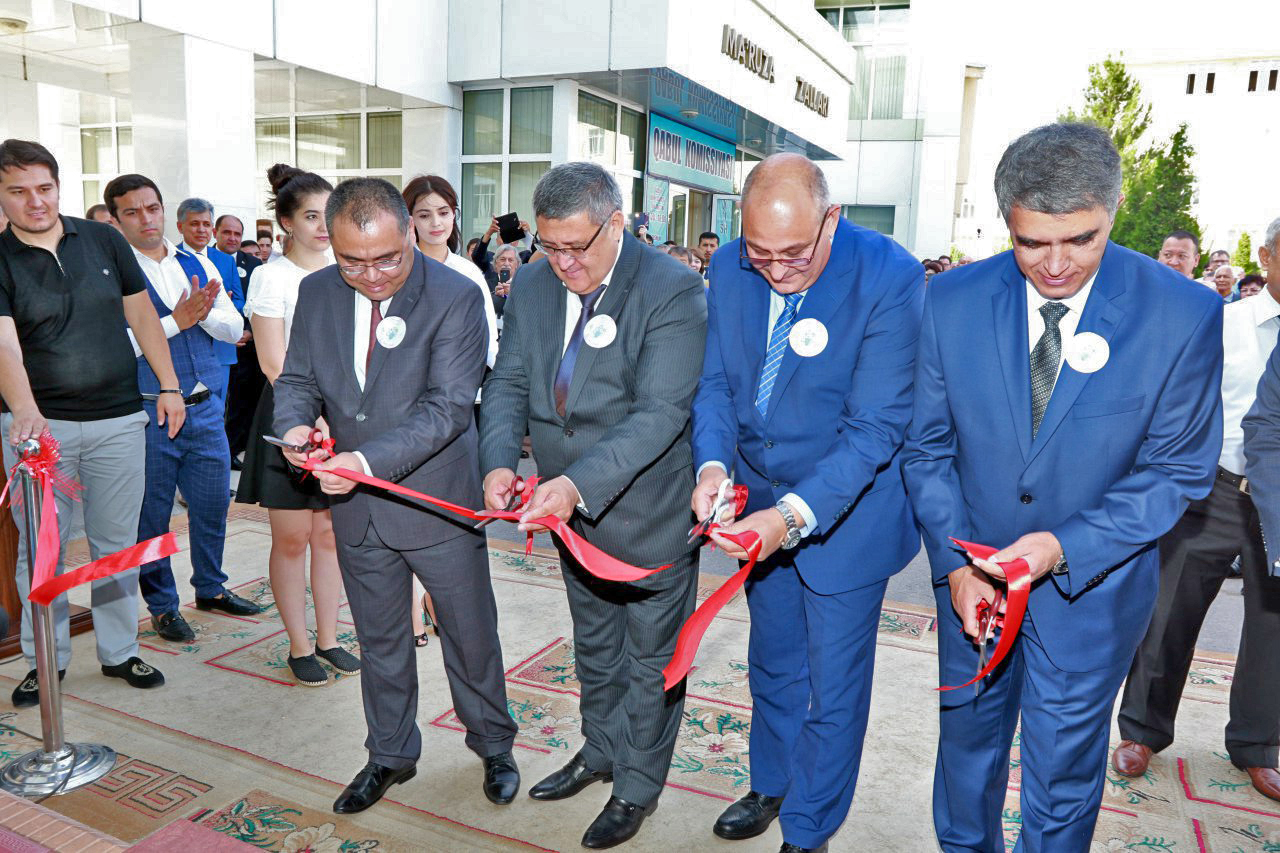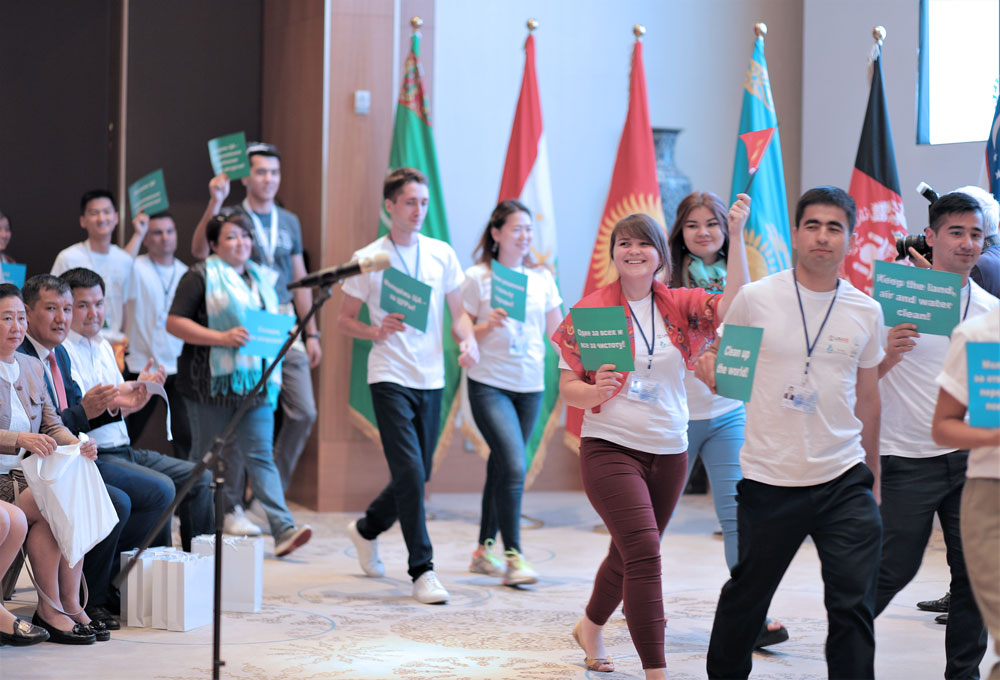
On June 5-8 the Central Asian International Environmental Forum (CAIEF) was held in Tashkent, where the issues of strengthening cooperation in the field of environmental protection and sustainable development were discussed at the regional level. The forum was organized by the State Committee of the Republic of Uzbekistan on Ecology and Environmental Protection and the Regional Environmental Centre for Central Asia with the support of UNDP, European Union, World Bank, USAID and OSCE. A month after the large-scale event, it is time to recall how the forum was held, based on the main figures and facts.
The forum in Tashkent became the second in a row. The first event was held in 2017 in Ashgabat (Turkmenistan); it was initiated and organized by the Regional Environmental Centre for Central Asia with the support of the governments of Central Asia.

About 400 people from various countries participated in CAIEF 2018, including the representatives of more than 50 international and regional organizations, academia, civil society, business structures, as well as leading experts and analysts in the field of environmental protection and sustainable development.
The following events were organized within the forum in Tashkent: 6 plenary and 9 parallel sessions on 3 main topics – conservation of biodiversity and development of a network of protected natural areas, integrated management of solid domestic waste, renewable energy and energy efficiency. The discussions on main topics included 3 directions: the legal and institutional framework; scientific cooperation and best practices; public-private partnership.
Within the sessions, 18 reports and 43 presentations were given by representatives of Central Asian countries and Afghanistan, as well as international and regional organizations.

Thematic results of the forum:
I. Conservation of biodiversity and development of a network of protected natural areas:
-
The strategic objectives on biodiversity until 2020 are not fully achieved by the countries of Central Asia, so it was proposed to develop more specific and achievable goals for the next period;
-
A continuous update of the database on the protected areas is required. It was also recommended to conduct regular strategic environmental assessment and environmental impact assessment at all protected areas;
-
An important role of scientific cooperation and networking among scientists from Central Asian countries, as well as with foreign scientists was noted;
-
It is necessary to involve business, as well as to enable local communities to participate in biodiversity conservation and development of protected areas;
II. Integrated management of solid domestic waste:
-
Insufficient level of solid domestic waste recycle is a common and actual issue for all Central Asian countries. To address this problem, it was advised to involve the private sector and attract investment through the creation of good investment climate; for example, to free potential entrepreneurs and investors from taxes and various duties, and provide preferences and other incentive measures;
-
Since waste management is often the responsibility of several agencies – usual ministries of the environment and local authorities – the need for integration and coordination was pointed out;
-
It was recommended to pay more attention to prevention measures;
-
A universal approach to the application of technologies for solid domestic waste management is not acceptable because of the difference in morphology of solid waste in the countries of Central Asia. Therefore, it was noted the importance of cooperation at the regional and global level in order to obtain advanced knowledge and exchange of experiences on the issue;
-
It is necessary to improve the management of national statistics of solid domestic waste in Central Asian countries, including waste morphology;
III. Renewable energy sources and energy efficiency:
-
The achievement of Sustainable Development Goals cannot be reached without transition from traditional fuel to clean energy. There is a great capacity for the development of renewable and sustainable energy in the region; moreover, there is a potential for further energy export to other countries;
-
Almost all countries of Central Asia have created the basic legislative base;
-
It is necessary to create an attractive investment climate for the development of renewable energy and energy efficiency, to introduce appropriate encouragement and incentives;
-
The importance of the development of infrastructure and research in the field of new technologies was emphasized;
- In terms of regional cooperation, the development of sustainable and renewable energy is less expensive compared to the implementation of this approach individually by each country.
The first in Central Asia Innovations and Scientific Research Cluster was opened within the forum. It was established by the Regional Environmental Centre for Central Asia in cooperation with the Tashkent Institute of Irrigation and Agricultural Mechanization Engineers (TIIAME). The aim of the Cluster is to facilitate the transferring of know-how to students and young researchers, popularizing of scientific activity among young people and developing skills of modern thinking.

The forum became a platform for the first specialized International exhibition “Green Ecology Technologies Central Asia – GETCA 2018” and for the Business Forum on Green Ecology Technologies.
International Conference on “Joint Actions to Mitigate the Consequences of the Aral Sea Catastrophe: New Approaches, Innovative Solutions, Investments” was held within CAIEF 2018. It was aimed at the practical orientation and coordination of the actions of the countries of the region conducted to solve the problems of the Aral Sea region. During the sessions, analysis and evaluation of implemented programs for mitigating the consequences of the disaster in the Aral Sea basin were presented.
Also, 9 parallel events were held within the forum:
-
Regional meeting “Intersectoral investments to foster water, energy and food security”;
-
Special Meeting “Partnership for Sustainable Development”;
-
Meeting of the Regional Steering Committee CAREC-USAID of “Smart Waters” project;
-
Workshop on “Mainstreaming Technology in Climate Action Plans” (Climate Technology Centre & Network CTCN, CAREC);
-
CAREC Public Advisory Council (PAC) meeting;
-
Special session “Youth of Central Asia”;
-
Meeting of the EU-CA Working Group on the environment and climate change;
-
Special Session on Regional water cooperation in Central Asia;
-
Subregional workshop on the transboundary assessment procedure of environmental impact.
CAIEF 2018 was closed on June 8. The forum allowed informing the participants on the trends at the global, regional and national levels. Participants also explored opportunities to strengthen regional cooperation and formulated joint actions in the context of achieving SDGs for Central Asia. It should be noted that many bilateral and multilateral meetings between the forum participants took place during the event. CAIEF proved its credibility as a platform for strengthening dialogue in the field of environmental protection.
The next Central Asian International Environmental Forum is planned to be held in 2020. The Secretariat of CAIEF, represented by the Regional Environmental Centre for Central Asia, is currently negotiating with its national partners and will inform about the date, venue, and the subject of the next forum.

Read more in the materials published on the website of CAREC.
- The opening of the forum
- The first day of CAIEF 2018: Conservation of biodiversity
- The second day of CAIEF 2018: Solid Waste Management and Renewable Energy Sources
- How to mainstream technology in climate action plans? Workshop in Uzbekistan
- Investments to strengthen water, energy and food security in Central Asia were discussed at CAIEF 2018
Currently, CAREC is working on the report of the forum and will share it soon. We kindly remind you that all presentations and photos from the CAIEF 2018 are available on the forum webpage.
